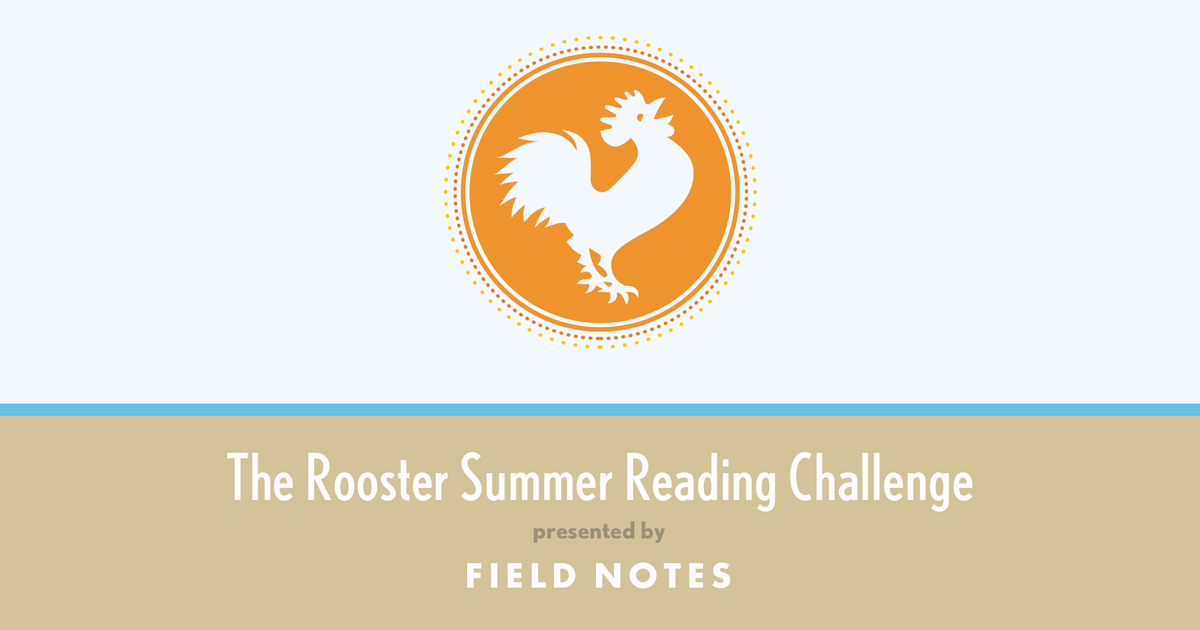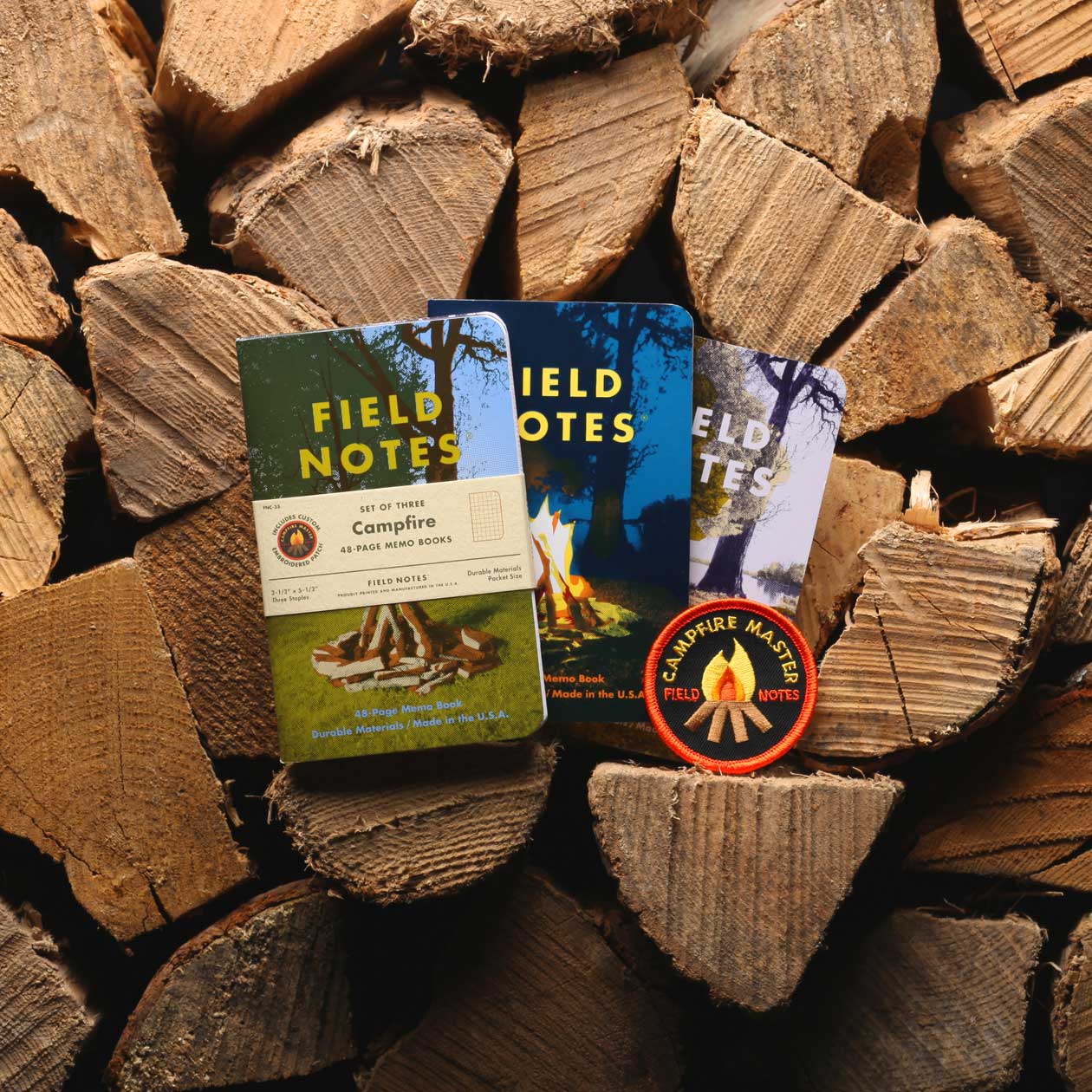The Rooster Summer Reading Challenge: Week 10
This week we're again joined by Rachel Khong as we discuss Temporary People's second half, which took this already unusual set of stories to some unexpected places.

Welcome to the Rooster Summer Reading Challenge, brought to you by The Morning News Tournament of Books and our presenting sponsor, Field Notes. All summer long, we’re reading two novels a month and reconvening on Wednesdays to discuss the books. Joining our chats is a monthly guest judge, who at month’s end decides which title heads to our summer championship on Aug. 30—when you choose which book gets an automatic berth in the 2018 Tournament of Books.
For August we’re reading Temporary People by Deepak Unnikrishnan (selected by the ToB Committee) and Fever Dream by Samanta Schweblin (chosen by Victor LaValle, who joined us in June), with novelist Rachel Khong.
- Plan your summer reading: Fever Dream (first half by Aug. 16, finish by Aug. 23)
- Catch up on previous chats: A Separation (first half, second half), The Night Ocean (first half, second half), Ill Will (first half, second half), Marlena (first half, second half), Temporary People (first half)
- Jump into this week’s discussion in the comments
Nozlee: We’re back to finish up our discussion of Temporary People! The 16 short stories that comprise the last half of the book took a turn for the wistful: Young Indian boys play cricket and soccer together until one day they clash with a group of Arab kids; a man agrees to take care of the guard dog of a crumbling house that has sat empty for decades; a boy grapples with the disappearance of his father, recently released from prison in the UAE for sleeping with another man.
Rachel Khong grew up in Southern California, and holds degrees from Yale University and the University of Florida. From 2011 to 2016, she was the managing editor then executive editor of Lucky Peach magazine. Her fiction and nonfiction have appeared in Tin House, Joyland, American Short Fiction, the San Francisco Chronicle, The Believer, and California Sunday. She lives in San Francisco. Goodbye, Vitamin is her first novel.
Nozlee Samadzadeh is the ToB producer and a developer at Vox Media.
Temporary People shifted for me when I read “Nalinakshi,” the last story in part two, “Tongue. Flesh.” Suddenly we break the fourth wall as a woman speaks in the second person to someone we presume is the author himself, telling him about what the word pravasi, or foreigner, means to her. (By this point in the book, it’s been defined for us, but not in the emotional words of a foreigner herself.) That was the change in focus I needed for me to “get” the book’s wide-ranging stories. What did you think of this second half?
Rachel: I really liked “Nalinakshi” for that reason too, but I can’t say that it made it all click for me—I wish it had come earlier. Where it was, page 185, it was too little (two pages, exactly) too late. But! I loved that first cockroach story, the first thing we read in the second half.
Nozlee: And what a way to kick off the second half—that story, “Blattella Germanica,” is about an infestation of cockroaches who teach themselves how to speak, walk on two legs, and wear human clothes, as observed by a young boy out to kill them.
Rachel: I don’t know, it was so joyfully weird. I could understand the motivations of the subjects of this story, and really clearly. What they want is to stay alive.
Nozlee: I like that you use “clear” as a positive attribute of that story. Speaking of clarity, I was alternately admiring of and maddened by the way this book doesn’t go out of its way to define Arabic and Malayalam words for the reader. I correctly guessed shurtha as an all-seeing Arabic police force; they exist as the background of many of the stories, like in “Moonseepalty,” the story about kids playing soccer and cricket in a parking lot. That vagueness emphasizes the shurtha’s menace. But I assumed the story title “Dingolfy” was someone’s name, and I was wrong—when I looked it up I learned that it’s a Malayalam word for a secret, illicit relationship. (The story is seven sentences long and describes just that.)
What do you think of the balance the book kept between giving us context and keeping us on edge? Whose job is it to figure out what a dingolfy is?
Rachel: I see what you’re saying. On the other hand I hate when people complain about books that have any foreign terms in them at all. We all have Google! I liked imagining somebody who speaks Malayalam just breezing through this. Your question of “balance” is a good one though. I was fine with shurtha and I didn’t mind dingolfy because, like you said, it’s basically described; the not-defining-words thing didn’t bother me. But I think there is definitely a lot of vagueness/keeping us on edge that, to my mind, doesn’t serve the book. I was more maddened by the blacked-out rectangles of redacted names, which appear in a few separate pieces. Also, what were the drawings all about?
Nozlee: Yes, the angular drawings of people and construction sites! I assume Unnikrishnan himself drew them, if only because there’s no other credit.

Field Notes Limited-Edition for Summer is Campfire. Campfire features three original photos that have been line-screened and carefully spot-printed, for a vintage feel, and each pack comes with a custom “Campfire Master” patch, ready for your scout sash or messenger bag.
Rachel: The book was somehow both too subtle and too obvious, at the same time. It’s subtle in its handling of these subjects, sometimes to the point of opaqueness, and yet the overarching themes are so glaringly present.
For a book that tells you, right away, that it’s going to be about these “temporary people”—this disposable, invisible workforce—the people who populate the book are, in the book itself, just as temporary and disposable and not particularly human. Of course, I can see the intellectual reasons for making that choice—how not allowing us an emotional connection to these characters mirrors their situation. But it made it challenging for me to sink my teeth into. Which is again maybe the point?
Nozlee: We definitely got some of that in the comments last week too, from people who responded to the “sense of unreality created by all the magic and weirdness” to others who ultimately put the book down unfinished because that weirdness alone wasn’t enough for them.
Rachel: Maybe that’s why I preferred “Blattella Germanica,” the story that wasn’t even about humans at all. The cockroaches were weirdly interior!
Nozlee: Any last words on Temporary People? Was the book successful in transcending what a novel or a short-story collection can do to create something “animal-like and city-like”?
Rachel: I think so. I mean, we’ve talked about our misgivings, but I do think it is beautifully written and really singular, and that’s what kept me turning the pages—wanting to read something that took my breath away. Unnikrishnan can write a striking image.
Nozlee: From the strangeness of clowns selling detergent to the harsh reality of being an immigrant, he really can. It sounds like we mostly agree about the book: The imagery is evocative, and the main theme of alienation is interestingly and persistently presented, but it all adds up to something a little bit exhausting. My plan is to earmark my favorite stories from the book for whomever I end up loaning it to down the line, just like I would for a regular short-story collection.
We’re permanently done with Temporary People. Up next, our shared Fever Dream begins, as we discuss pages 1 to 90.

